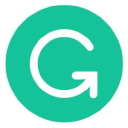How We Launched A $1.2K/Month Edtech Application That Helps Beginners In The IT Industry
Hello! Who are you and what business did you start?
Hello, I'm Radoslaw Fabisiak, and together with Anna Danilec, I'm the co-founder of Duomly e-learning company. We started our ideas to give people a better learning experience about two years ago.
The project which we built is called Duomly, and it's an edtech application that helps beginners join the IT industry.
But as well as supporting advanced programmers with knowledge about how to build projects.
We focus on parts of IT like Machine learning and AI, Front-end and Back-end development, Blockchain development, and building Mobile apps.
Students can learn programming theory with fun through interactive challenges, quizzes, coding tasks, but can build real-projects as well, and see their live progress.
Three months ago, we gave our clients the possibility of paying by credit cards and started selling first accounts. Now we have sales of around $1200/month.

Download the report and join our email newsletter packed with business ideas and money-making opportunities, backed by real-life case studies.

Download the report and join our email newsletter packed with business ideas and money-making opportunities, backed by real-life case studies.

Download the report and join our email newsletter packed with business ideas and money-making opportunities, backed by real-life case studies.

Download the report and join our email newsletter packed with business ideas and money-making opportunities, backed by real-life case studies.

Download the report and join our email newsletter packed with business ideas and money-making opportunities, backed by real-life case studies.

Download the report and join our email newsletter packed with business ideas and money-making opportunities, backed by real-life case studies.

Download the report and join our email newsletter packed with business ideas and money-making opportunities, backed by real-life case studies.

Download the report and join our email newsletter packed with business ideas and money-making opportunities, backed by real-life case studies.
















